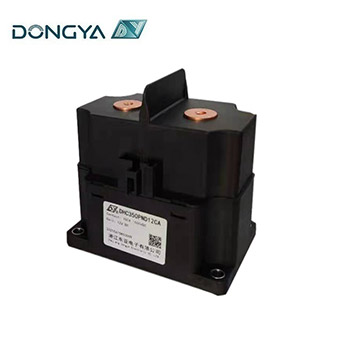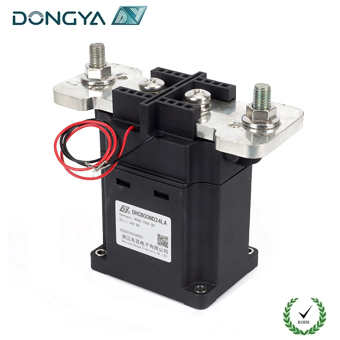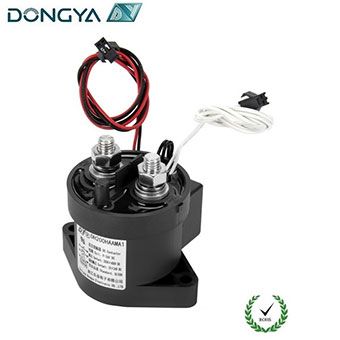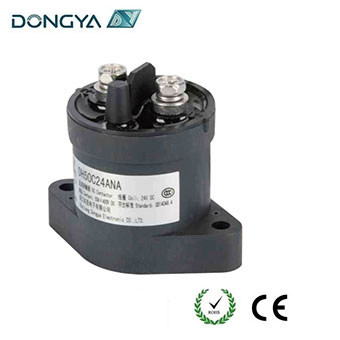A DC Contactor is an electrical device used to control a DC circuit, which mainly realizes the switching control of the circuit through electromagnetic principles. It can safely open and close the current under DC load, and is widely used in motor control, charging equipment, battery management system, solar inverter and other fields. Compared with AC contactors, DC Contactors need to consider higher arc extinguishing ability in design, because DC current is more difficult to extinguish when the circuit is disconnected.
Factors to consider when selecting a DC Contactor
1. Rated voltage:
Make sure that the rated voltage of the selected contactor matches the circuit voltage to avoid equipment damage or failure caused by overvoltage. Generally, the rated voltage of the selected contactor should be higher than the actual working voltage of the circuit.
2. Rated current:
The rated current of the contactor should be greater than or equal to the actual load current. To ensure safety, it is recommended to select a rated current that is 20%-30% higher than the actual current used. This can prevent the contactor from overheating or damage under load peak conditions.
3. Contact configuration:
The contact configuration of the contactor directly affects the control logic. Select the appropriate contact configuration (such as normally open or normally closed) according to your needs, for example:
· Normally open contact: It is in the disconnected state when the contactor is not powered, suitable for general switch control.
· Normally closed contact: It is in the connected state when the contactor is not powered, suitable for safety protection and emergency power off.
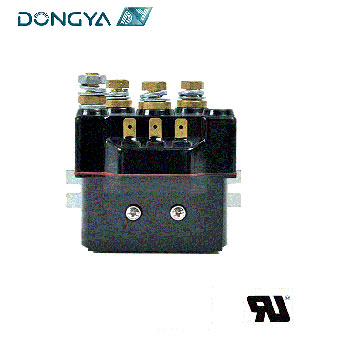
4. Breaking capacity:
Ensure that the breaking capacity of the contactor can safely cut off the load current to prevent damage caused by arcing generated during disconnection. The breaking capacity is usually measured by the maximum interruptible current (such as short-circuit current).
5. Operating frequency:
If the application requires frequent switching of circuits (such as industrial automation), a contactor suitable for high-frequency operation should be selected. Such contactors are usually specially designed to improve durability and reduce wear.
6. Solenoid coil voltage:
Ensure that the voltage of the solenoid coil matches the voltage of the control power supply. When selecting, consider the stability of the power supply voltage to avoid contactor malfunction caused by voltage fluctuations.
7. Environmental conditions:
Consider the environment in which the contactor will work, including temperature, humidity, dust and corrosive gases. Choose a contactor with the appropriate protection level, such as IP rating, to ensure that it works properly in harsh environments.
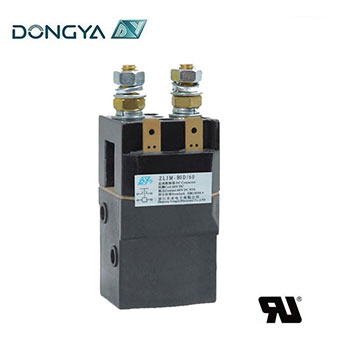
8. Size and mounting method:
Choose a contactor of the appropriate size according to the size of the installation space to ensure smooth installation. In addition, consider the mounting method of the contactor (such as rail mounting, panel mounting or base mounting) to facilitate maintenance and replacement.
9. Materials and durability:
Choose a contactor made of high-quality and durable materials to ensure its long-term operation and reliability under high loads and extreme environmental conditions. Copper contacts generally have better conductivity, while silver alloy contacts are more wear-resistant.
10. Additional functions:
Modern DC Contactor may provide additional functions such as overload protection, short-circuit protection, current monitoring, etc. These functions can improve the safety and reliability of the system, especially in critical applications.


